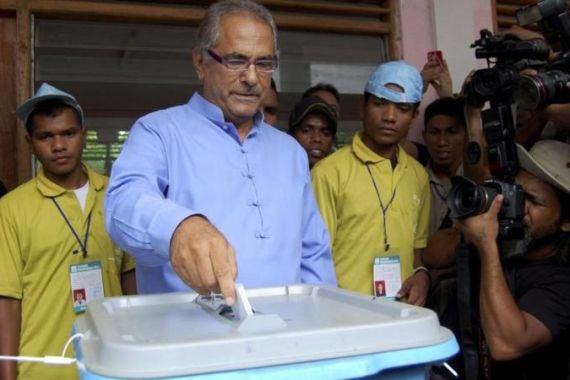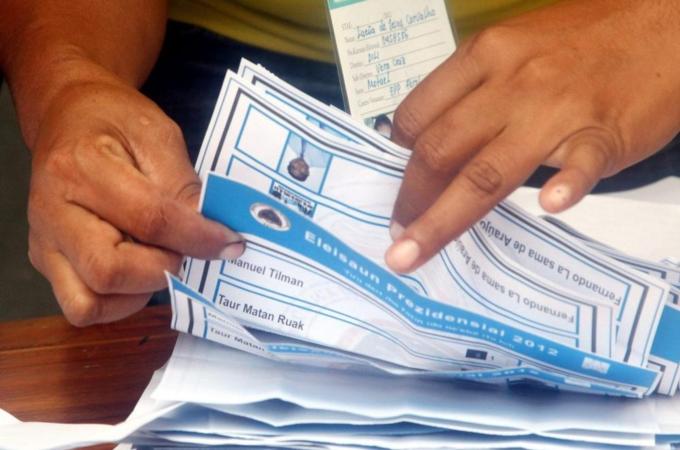East Timor’s Ramos Horta admits defeat
Nobel peace laureate promises to hand over power to eventual winner after finishing third in Sunday’s presidential poll.

 |
| Full results for the East Timor elections are expected on Tuesday [Reuters] |
Jose Ramos Horta, East Timor’s incumbent president and Nobel peace laureate, has conceded defeat after a poor showing in weekend elections.
Ramos Horta was lagging in third place with more than 70 per cent of votes of Sunday’s presidential poll were counted, election secretariat official Luiz Fernando Valls told the AFP news agency.
On Monday, Ramos Horta promised to hand over power to the eventual winner.
“On the stroke of midnight on May 19, I will hand over leadership of the country to the new president, one of the two who are now going for a second round,” Ramos Horta told reporters in the capital Dili.
The two leading candidates, Francisco “Lu Olo” Guterres, of the traditionally strong leftist Fretilin party, and former military chief Taur Matan Ruak, will be contesting the runoff election.
According to preliminary results, Guterres took 28 per cent of the vote, Ruak 25 per cent and Ramos Horta 17 per cent in the first round.
Ramos Horta said he was not disappointed and that both men were capable of ensuring peace and stability for the tiny nation, which was his only real concern.
Economy tops agenda
 |
| The World Bank says 41 per cent of East Timor’s 1.2 million people live on less than $0.88 per day [Reuters] |
East Timor, the eastern half of an island at the eastern end of the vast Indonesian archipelago, became independent after nearly two decades under Indonesian control. Before that it had been a Portuguese colony.
The president plays little role in policy but is vital in underpinning stability in East Timor, which has vast offshore
gas reserves, but is having difficulty unlocking its wealth.
The reserves are the object of a dispute with Australia’s Woodside Petroleum, which heads a consortium of firms
developing the Greater Sunrise project gas field.
It wants to use a floating LNG plant, while East Timor wants the plant built on shore to create more jobs.
Economic issues top the agenda for many voters as 41 per cent of East Timor’s 1.2 million people live on less than $0.88 per day, according to a World Bank report.